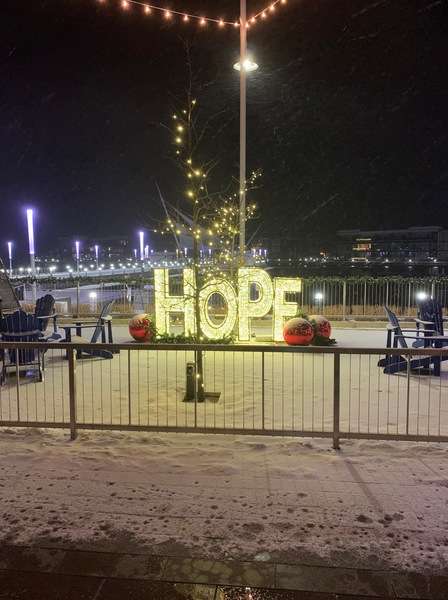Preached at All Saints, King City, Anglican Diocese of Toronto, 12 December, 2021, The Third Sunday of Advent. Texts for this Sunday:Zeph 3:14-20, Canticle 3 (Isa 12:2-6); Phil 4:4-7; Lk 3:7-18.
14Sing aloud, O daughter Zion; shout, O Israel! Rejoice and exult
with all your heart, O daughter Jerusalem!
Today I want to talk about joy and how it is, and should be, a
major part of our relationship with God.
There are other things we should take joy in, of course: our
families, our skills, our hobbies and crafts, and our friends, even those
friends that we sometimes find annoying.
You must have a few friends like that.
I met up with an old friend recently, someone who doesn’t seem
like much of a believer, but who is fascinated by the fact that I’m a
minister. “Have you preached any good
fire and brimstone sermons lately?”, he asked me. “I like a good fire and brimstone sermon.”
I replied that fire and brimstone sermons weren’t really my
style, and that as an Anglicans, we don’t go much for talk of God’s wrath and
judgement. “Pity,” said my
friend. “As a Scots Presbyterian, I
like a good fire and brimstone sermon.”
could find much in our lessons to satisfy him, because there just aren’t the
makings of a fire and brimstone sermon.
I went through the lessons and highlighted what seemed to me to be the
key words, as I often do. I noticed a
lot of verbs, telling us what to do and feel as God’s people. Here’s what I found.
prophet would be good for some wrath of God stuff, I found these verbs: “sing”, “rejoice”, “exult”, “renew”,
“gather”, “save”, “praise”, “bring home, and “restore”.
“sure defence”, “give thanks”, “cry aloud” and “ring out your joy”. From our epistle, from Paul who is sometimes
caricatured as being as dour as any Scot, we find “rejoice” (repeated twice),
“do not worry”, and we are told to show our “gentleness”.
Baptist, frightening the heck out of the crowds in the wilderness with his talk
of the axe at the tree and the coming fire.
But here’s the thing about John as a preacher. His message is, fundamentally, optimistic. Luke says that John “proclaimed the good
news to the people” (Lk 3.18). John
preaches that if we repent, meaning if we turn our hearts and lives to the one
who is coming, to Jesus, then we will bear good fruits (Lk 3.8).
what those good fruits might look like.
We see glimpses of a world where those who have share with those who
don’t. We see a world that isn’t run by
corruption, fear, and brute power. In
this respect, John is preaching from the same script that Israel’s prophets all
preached from. In the short book of
Zephaniah, which begins as a real fire and brimstone sermon, Zephaniah says
that the doom of unfaithful Israel can be averted its people “Seek the Lord,
all you humble of the lord, who do his commands, seek righteousness, seek
humility” (Zeph 2.3).
hope, peace all come from answering the call of God’s kingdom. It’s the call of God’s kingdom that gives
rise to our deepest joy and wellbeing.
That’s why today, the Third Sunday of Advent, is still sometimes called
Gaudete Sunday, from the Latin word “Gaudete”, meaning “be joyful”.
Sure, there are plenty of things to worry about. The word has plenty of messages that are, in
effect, fire and brimstone sermons, using the “if you don’t do X, then terrible
thing Y will happen” structure. You know
them:
“If we don’t address the opiod crisis, more people will die.”
“If we don’t get global warming under control, the planet will
die.”
for. Indeed, as subjects of the kingdom of God, we should fight for the poor,
we should feed the forgotten, we should do our part to save creation. But my friends, of all the things we should
worry about, we should never, ever, fear an angry god. That’s not the god of Israel, or the God of
Jesus.
Advent is about preparing for the coming of the God who dwells
among us, who stands with us, and who dies for us. Advent is about opening our hearts to the
one who loves us and rescues us.
from his “Sermon on the Afternoon of Christmas Day”. Dr. King said, For, if it is true that the child was
born of the virgin and is mine, then I have no angry God and I must know and
feel that there is nothing but laughter and joy in the heart of the Father and
no sadness in my heart.
My friends, this Advent, let us make ready to go to the manger
with nothing but laughter and joy in our hearts. Amen.

